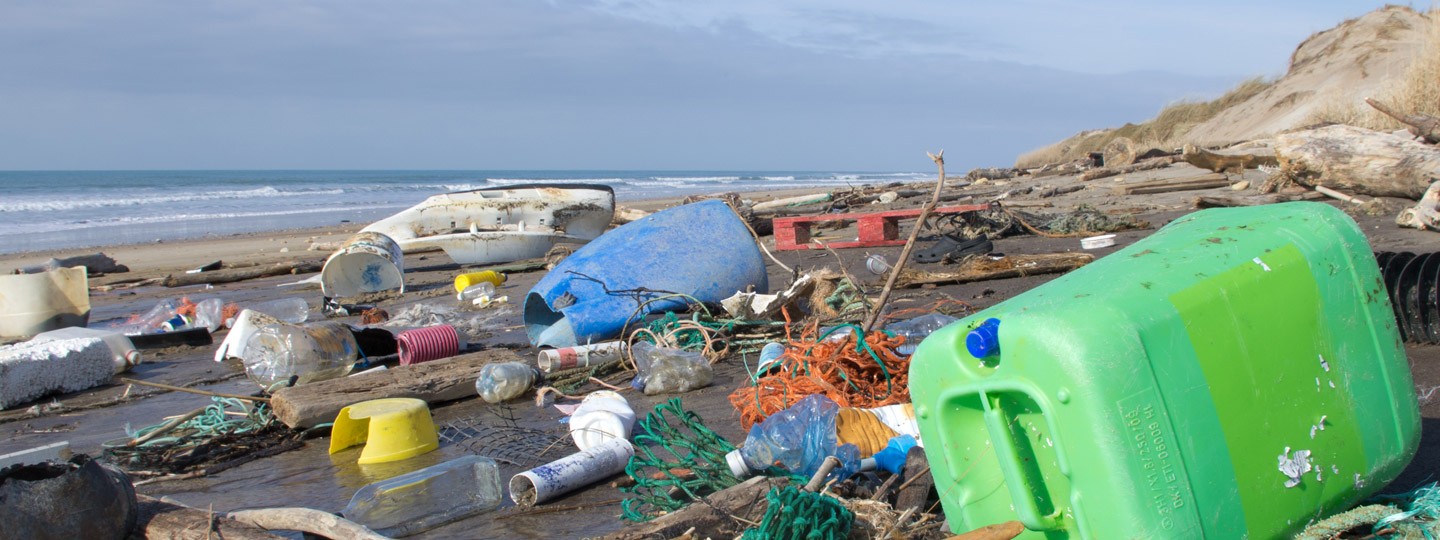
On June 18th, the California Ocean Protection Council (“OPC”) publishes the “California Ocean Litter Prevention Strategy: Addressing Marine Debris from Source to Sea.” After over a year and a half in development, the document is intended to guide the next 6 years worth of action for the reduction and prevention of ocean litter. The strategy development process included stakeholders from local, state and federal government agencies; non-governmental organizations; industry and businesses; academia and others. The Steering Committee for the process included OPC, NOAA Marine Debris Program, California Sea Grant, California Coastal Commission, and Surfrider Foundation. The strategy was approved by the OPC members on April 24, 2018 and is now publicly available.
The current document is a follow up on the 2008 OPC Strategy to Reduce and Prevent Ocean Litter, but has now incorporated the voice of the National Oceanic and Atmospheric Administration, the federal agency that has participated with several other states in developing litter strategies. Some of the strategies in the 2008 document have been accomplished, such as the ban on single-use plastic checkout bags in the state of California, but other recommendations were reassessed and emerging issues, such as microplastics, also created a need for a new strategy.
Environmental groups in the state watched and participated closely in this process. In January 2018, a coalition of environmental groups that are part of the Clean Seas Coalition wrote a comment letter in support of the OPC Litter Strategy and specifically the Ocean Protection Council Priorities to Address Ocean Litter, which includes the first priority objective: “Advance source reduction efforts through policy tools and research to prevent land-based litter from entering and negatively impacting waterways and the ocean.” As the strategy acknowledges, “agencies and experts agree that source reduction is the most effective tactic to address ocean litter.” In doing so, OPC also recommends bans on expanded polystyrene foam foodware, which many Surfrider chapters are working on across the state and the nation (like San Diego). We applaud the prioritization of source reduction as the key policy focus for the OPC.
We also applaud the OPC for Goal 2 that focuses on microplastic pollution. Microfibers, in particularly, have emerged as a huge threat to our water quality and the health of marine ecosystems and the food chain. At the April 24th OPC hearing, it was reported that 25-30% of California shellfish have plastic in their stomach. In this strategy, the OPC, as a state agency, has committed to “increase understanding of the scale and impact of microplastics and microfibers on the marine environment and develop solutions to address them.” OPC acknowledges its critical role to play as a lead state agency addressing this matter, researching and solving for system-wide solutions to microplastics in our water. It is of the utmost importance to understand the critical ties of how plastics are affecting human health through the food chain, and supporting the effort to curtail land-based plastic pollution, which constitutes the majority of physical ocean pollution.
In addition to OPC’s explicit goals as a state agency, the stakeholders at the meeting reached goals, mostly focused on reduction of land-based ocean litter. They include:
Land-based Ocean Litter
Goal 1: Reduce the use of common ocean litter items through mandates and incentives targeting public institutions and businesses.
Goal 2: Reduce the prevalence of common ocean litter items through changes in product production, design, and management.
Goal 3: Improve waste management and interception of litter on land before it enters the ocean.
Goal 4: Conduct and communicate research on existing and emerging issues related to land-based ocean litter.
Goal 5: Generate behavior change by educating and engaging communities and individuals to reduce ocean litter.
Ocean-based Marine Debris
Goal 6: Reduce the sources of ocean-based debris and maximize the efficiency of ocean- based debris cleanup.
Related to Surfrider Foundation’s beach clean up efforts, the strategy demonstrates support for a comprehensive characterization of macro and microplastics. Specifically, under Objective 4.1 and Action Item 4.1.4 is to “Create a comprehensive litter dataset to identify the most common item types according to volume, weight, flux, material, product, source, brand and other units of importance.” Surfrider Foundation will be a leader on this action item in an ongoing effort to incorporate best practices into our beach clean up program.
Perhaps most valuable in this document is the great research compiled and laid out in the Literature Synthesis starting on page 38. Here, the OPC document explains the global problem, sources and impacts of ocean litter, including important facts:
- Globally, between 4.8 and 12.7 million metric tons of plastic waste enter the ocean from land every year (Jambeck et al., 2015).
- Globally, approximately 12% of this plastic waste was incinerated and 9% was recycled, while 79% was discarded and is currently sitting in landfills or the environment (Geyer et al., 2017).
- The United Nations Environment Programme (UNEP) estimates that the impacts of plastic pollution on the world’s ocean amount to about $13 billion a year. (UNEP, 2014)
All and all, Surfrider Foundation was honored to participate in this comprehensive strategic effort in California to build off of our past work in this state and efforts in other states such as Hawaii and Oregon who have also put forth successful strategies. Now that we’ve laid the groundwork for where we need to go, the next six years will be a challenging but worthwhile journey to address this worldwide problem through California leadership.